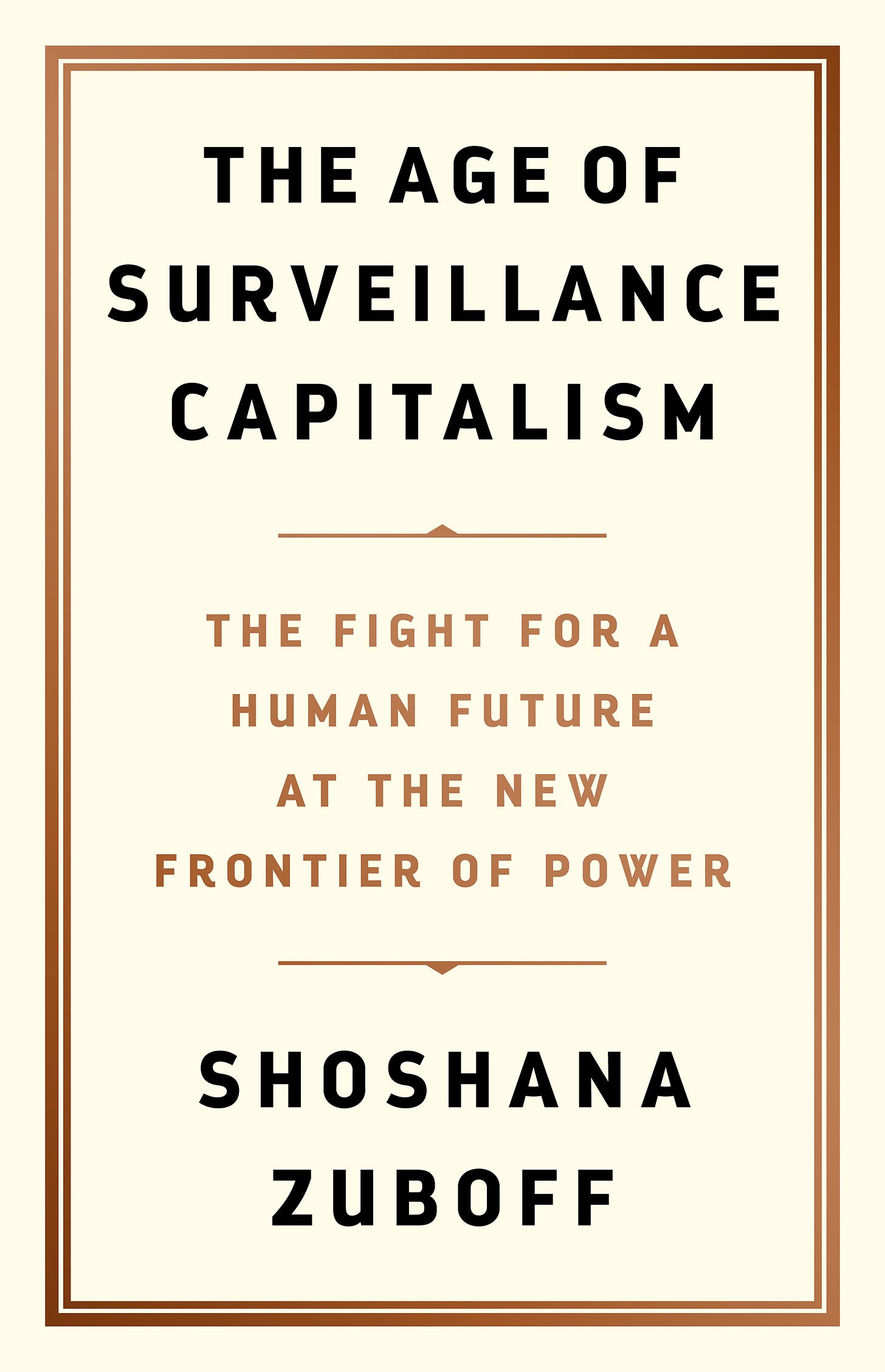The 228th Block: This is bananas!
AI for extremism, social media is like sex, and DIY medicine??
This week…
Your reading time is about 5 minutes. Let’s start.

I posted a series of banana photos on Instagram with the following caption:
As someone who researched and reported on misinformation and conspiracy theories for a few years, I can tell you that one of the first things I was told by Hugo Leal (the conspiracy researcher, not the footballer) was that there is a conspiracy theory for everyone (Barnum/Forer effect). You just have to continue going down the list and there’s something you're going to latch on to. I don’t know what his cup of conspiracy tea is but his focus at that time was on the great replacement theory. That’s funny because mine is kind of a great replacement theory but in a way that is both bananas but also not far off from the truth (allegedly):
I think the Panama disease was just a front used by capitalist Cavendish cultivators to make it the sole variety sold for commercial consumption. It literally replaced the other banana cultivars devastated by the disease and yet this silly banana variety cannot reproduce sexually and has to propagate by cloning. That means it is not genetically diverse, which makes it just as vulnerable to a new disease outbreak that can lead to overnight extinction! Make it make sense?? The only good thing about the Cavendish is that it is big and seedless, but it has a bland taste and the awful texture of overcooked rice! Also, pink bananas are real (see last slide).
Make mainstream bananas diverse again!
I continue to receive some out-of-the-ordinary feedback about the Scunthorpe problem Wikipedia page from #226, so I am pleased to introduce a new mini segment on TSB that no one asked for: Wikipedia this week! Long-time readers know I am a supporter of and a donor to Wikipedia, and so...
Your Wikipedia this week: Barnum effect.
And now, a selection of top stories on my radar, a few personal recommendations, and the chart of the week.
ICYMI: The Previous Block was about monkey business. FWIW:
Who wins from nature’s genetic bounty? The billions at stake in a global biopiracy battle by Patrick Greenfield for The Guardian.
China’s interests in Africa are being shaped by the race for renewable energy by Lauren Johnston (University of Sydney) for The Conversation.
CORRECTION NOTICE: None notified.UGH, AI
Synthetic threats: The potential misuse of AI for extremist propaganda in Southeast Asia
Nuurrianti Jalli and Irma Garnesia for Fulcrum:
In Southeast Asia, where internet penetration is high, and social media usage is widespread, the potential for AI-enhanced extremist content to reach and influence audiences is particularly concerning. Countries like Indonesia, Malaysia, and the Philippines are dealing with various extremist movements, and the introduction of AI tools could potentially amplify these existing challenges.
AI-generated videos have appeared on social media depicting Jemaah Islamiyah (JI) leaders and the Bali bombers detailing their involvement in terror incidents. One TikTok video features an AI-generated portrayal of the late Dr. Azahari Husin, the Malaysian bomb-maker behind the Bali (2002, 2005) and Jakarta (2003, 2004) bombings, explaining his role in jihad alongside JI, which had ideological and financial ties to al-Qaeda. This video, originally posted in 2023 apparently by an Indonesian content creator, received over 3.8 million views, 120,000 likes, and more than 2,000 shares on TikTok. Another TikTok video showcases an AI-generated depiction of Noordin Mohamad Top, a Malaysian JI leader responsible for the 2009 Jakarta hotel bombings, providing an account of his actions. This video, also originally published in 2023, received 3.8 million views and 90,500 likes. While these videos are clearly AI-generated, they can still captivate viewers and elicit psychological responses, potentially increasing the risk of radicalisation and spreading extremist ideologies.
Loosely linked:
There’s a fix for AI-generated essays by Kelsey Piper for Vox.
How I’m trying to use generative AI as a journalism engineer, ethically by Tomas Apodaca for The Markup.
If journalism is going up in smoke, I might as well get high off the fumes: Confessions of a chatbot helper by Jack Apollo George for The Guardian.
MEDIA MATTERS
Social media is like sex—young people need education, not unrealistic bans
Joanne Orlando (Western Sydney University) for The Conversation:
The [Australian] federal government has committed to a national plan to ban children from social media.
Details are still scarce. Prime Minister Anthony Albanese has acknowledged that “no government is going to be able to protect every child from every threat, but we have to do all we can”.
But banning children from social media isn’t going to fix the problem of online harms faced by young people – it’s only going to put the problem on pause. That’s because when children reach an age when they can use social media, they are still going to face many of the same issues.
Loosely linked:
Taiwan must tighten the lid on China’s misinformation campaigns by Mark Manantan for East Asia Forum.
Why YouTube will begin limiting access to fitness videos for European teens by Gabriela Galvin for Euronews.
Investigating the role of source and source trust in prebunks and debunks of misinformation in online experiments across four EU countries by Hendrik Bruns et al. for Nature’s Scientific Reports.
TALKING BODIES
Right to repair for your body: The rise of DIY, pirated medicine
Jason Koebler for 404Media:
…Four Thieves had figured out how to make EpiPens and Daraprim—an HIV medication controlled at the time by “pharma bro” Martin Shkreli—for far below what they cost in the United States.
Six years later, Mixæl Swan Laufer’s promotional tactics are largely the same. “It’s very vague,” he said when I asked him to list out the felonies he thought he’d be committing at DEF CON. “I’ll be on stage, handing out drugs that I made, that are under patent and not owned by me or licensed to me. When the moment comes, the list of things they can come after me with is very long because of how vaguely most of these laws are written.”
Crucially, unlike other medical freedom organisations, Four Thieves isn’t suggesting people treat COVID with Ivermectin, isn’t shilling random supplements, and doesn’t have any sort of commercial arm at all. Instead, they are helping people to make their own, identical pirated versions of proven and tested pharmaceuticals by taking the precursor ingredients and performing the chemical reactions to make the medication themselves.
Loosely linked:
For me, there was no other choice: Inside the global illegal organ trade by Seán Columb for The Guardian.
The ultra-selfish gene by Mathias Kirk Bonde for Work in Progress.
The rise of the science sleuths by Jessica Wapner for Undark.
Other curious links, including en español et français
LONG READ | A billionaire pig farmer fights his conviction from behind bars as tycoons face crackdown in China by David Lague for Reuters.
If we can’t speak, why live?: BBC meets women after new Taliban law by Yogita Limaye for BBC.
Pakistan’s China-style firewall is rattling its tech industry by Kunwar Khuldune Shahid for Rest of World.
DNS Detour: Malaysia’s contentious venture into digital governance by Munira Mustaffa for The Deep Dive.
Mexico’s Senate just approved changing the constitution. Here’s what you need to know by Eyder Peralta for NPR.
España, líder mundial en donantes un año más por Eduardo Madroñal Pedraza en Diario16+.
Un moderador de contenido de Barcelona se querella contra Meta por falta de medidas ante la “tortura psicológica” por Josep Catà Figuls en El País.
Cómo el movimiento pionero de familias vascas logró retrasar la edad del primer teléfono para sus hijos adolescentes por Jordi Pérez Colomé en El País.
La demande de naturalisation de Pavel Dourov, le patron de la messagerie Telegram, impulsée au plus haut niveau de l’État, malgré des alertes par Julie Pietri dans Franceinfo.
Des cyberesclaves forcés de frauder des Canadiens par Natasha MacDonald-Dupuis dans Radio-Canada.
Une plateforme numérique pour permettre la réappropriation du territoire par les jeunes par Simon Filiatrault dans Radio-Canada.
What I read, listen, and watch
I’m reading The Age of Surveillance Capitalism (2018) by Shoshana Zuboff. I’ve only read snippets because this is a looooooong book. I’m a third of the way through the book and I’m still not sure if I’m ready for it.
I’m listening to the confidence trick on Uncharted with Hannah Fry.
I’m watching Legal Eagle break down the legalese behind the US Justice Department’s indictment of two people working for RT for illegally funneling US$10 million to right wing YouTubers to push Russia-friendly narratives.
Chart of the week
For Statista, Florian Zandt showed Google’s ad revenue dwarfing competitors.




